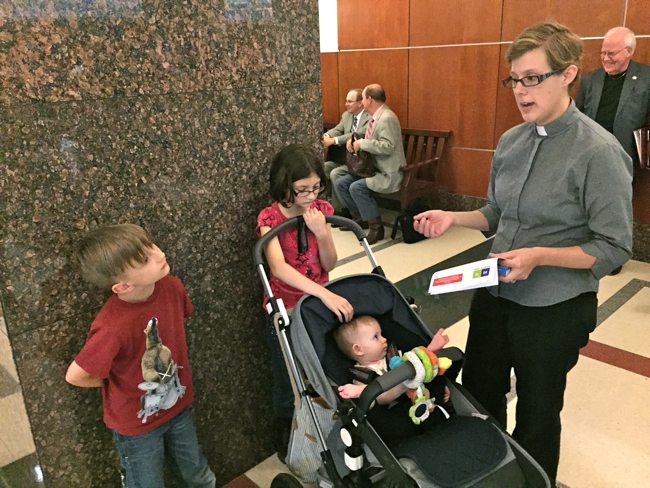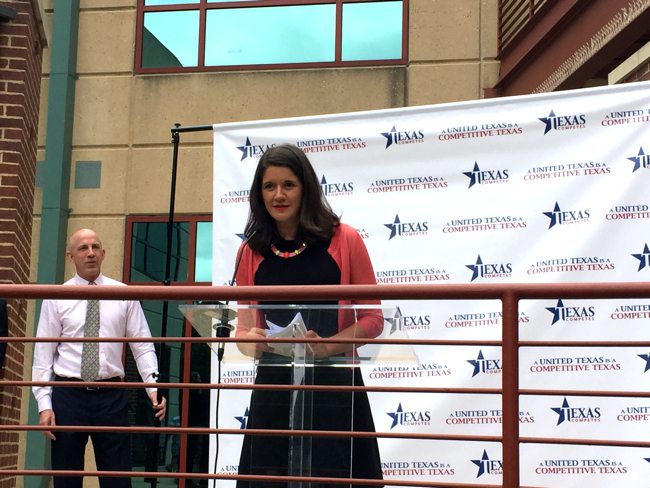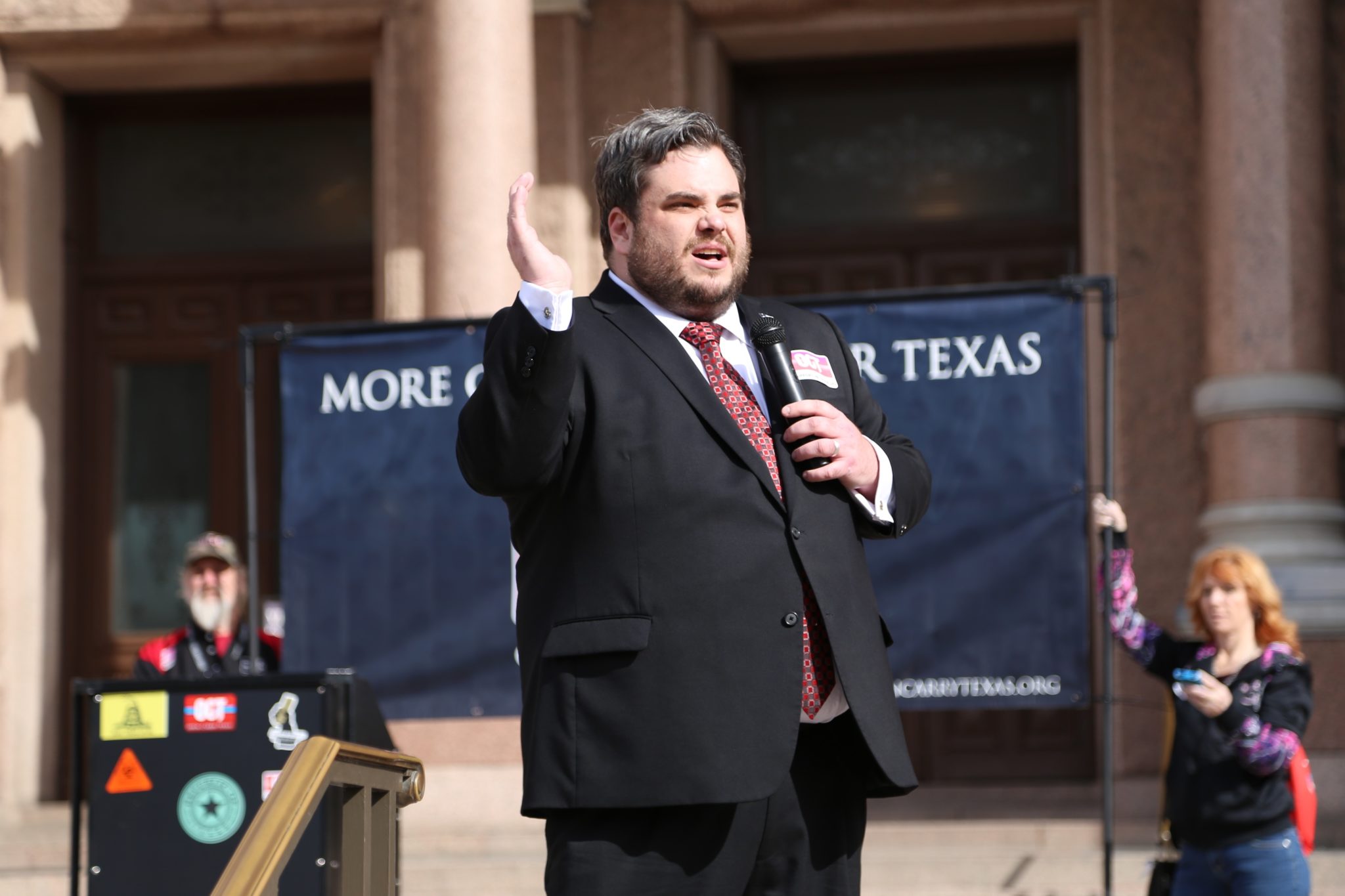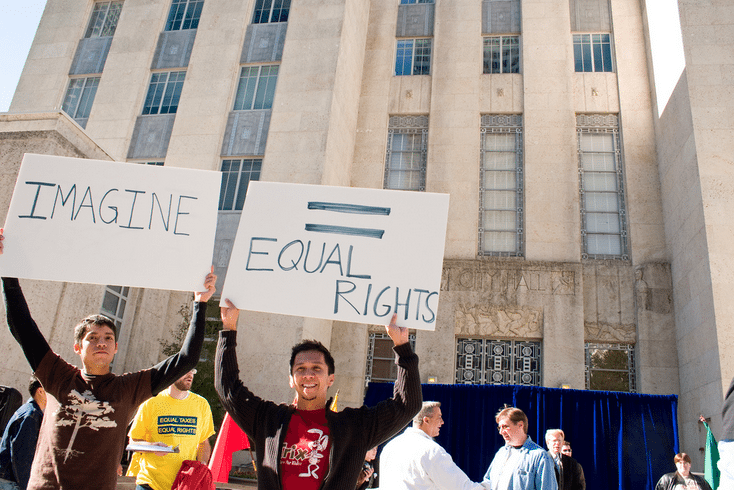
Anti-Gay Marriage Bill Raises Fiscal Concerns

Ten years after Texas lawmakers approved a constitutional amendment banning gay marriage, the issue returned to the Legislature on Wednesday.
House Bill 1745, by Rep. Cecil Bell (R-Magnolia), seeks to bar Texas officials from issuing marriage licenses to same-sex couples or recognizing their marriages—regardless of whether courts determine the state’s ban is unconstitutional.
More than a dozen witnesses gave nearly two hours of sometimes emotional testimony during a hearing on the bill—also known as “the Preservation of Marriage and Sovereignty Act”—before the House Committee on State Affairs. They debated the “biblical” definition of marriage, religious freedom and the principles of U.S. government, such as states’ rights, federalism and checks and balances.
However, the bill’s fate may ultimately hinge on something far more simple: dollars and cents.
HB 1745 would shift authority over marriage licenses from county clerks to the secretary of state, prompting a representative from the County and District Clerks’ Association of Texas to testify against it.
“The fiscal impact of that would be devastating to counties who are already struggling to balance their budgets,” said Teresa Kiel, legislative chair for the association and Guadalupe County clerk.
For example, Dallas County stands to lose $1.3 million in revenue from marriage licenses under the bill, Kiel said.
HB 1745 would cost state government almost $1.5 million in 2016, according to a fiscal note, in the form of labor and technology expenses in the secretary of state’s office. But Rep. Charlie Geren (R-River Oaks), a member of the committee, noted the estimate doesn’t take into account the loss of revenue to county clerks.
“I think there is a local impact and it’s in the millions of dollars, and I don’t know how we address that,” Geren said.
Bell said the secretary of state could still delegate marriage license duties to county clerks as long as they don’t issue them to same-sex couples, and he promised to introduce a substitute bill that allays Geren’s concerns.
But opponents of HB 1745 said its budgetary impact would go far beyond that.
If the U.S. Supreme Court rules in favor of same-sex marriage in June, Texas would spend millions defending lawsuits against officials who refuse to issue licenses to same-sex couples, according to Chuck Smith, executive
director of Equality Texas.
Rep. Sylvester Turner (D-Houston) pressed one supporter of the bill about whether it’s intended to circumvent a high court decision, referencing previous rulings extending equal rights to African Americans.
“History tells us that is not a good precedent,” said Turner, who is black.
Jonathan Saenz, president of Texas Values, responded that it depends on how the Supreme Court rules in the four marriage cases justices are scheduled to hear next month.

“I certainly think whatever the Supreme Court rules has value,” Saenz said, eliciting laughter from the audience. “Until we see a decision from the U.S. Supreme Court, that’s when we decide what Texas has to do at that point.”
Saenz and others said the bill is needed because officials are flouting the current ban, pointing to the marriage of a lesbian couple in Travis County last month, as well as Houston Mayor Annise Parker’s recent decision to extend benefits to the same-sex spouses of employees.
Saenz said 76 percent of Texas voters ratified the marriage amendment, but witnesses against the bill noted turnout in the November 2005 special election was only 17 percent, and they referenced polls showing more Texans now support same-sex marriage than oppose it.
However, Rebecca Robertson, legal and policy director at the ACLU of Texas, said the 14th Amendment was enacted to protect minorities against the will of the majority, and interpreting its guarantee of equal protection is the duty of courts.
“Texas does not have the power to exempt itself from the rule of constitutional law,” Robertson said.
The bill, which has 24 co-sponsors, was left pending in the committee.
Sen. Charles Perry (R-Lubbock) has introduced an identical measure.


